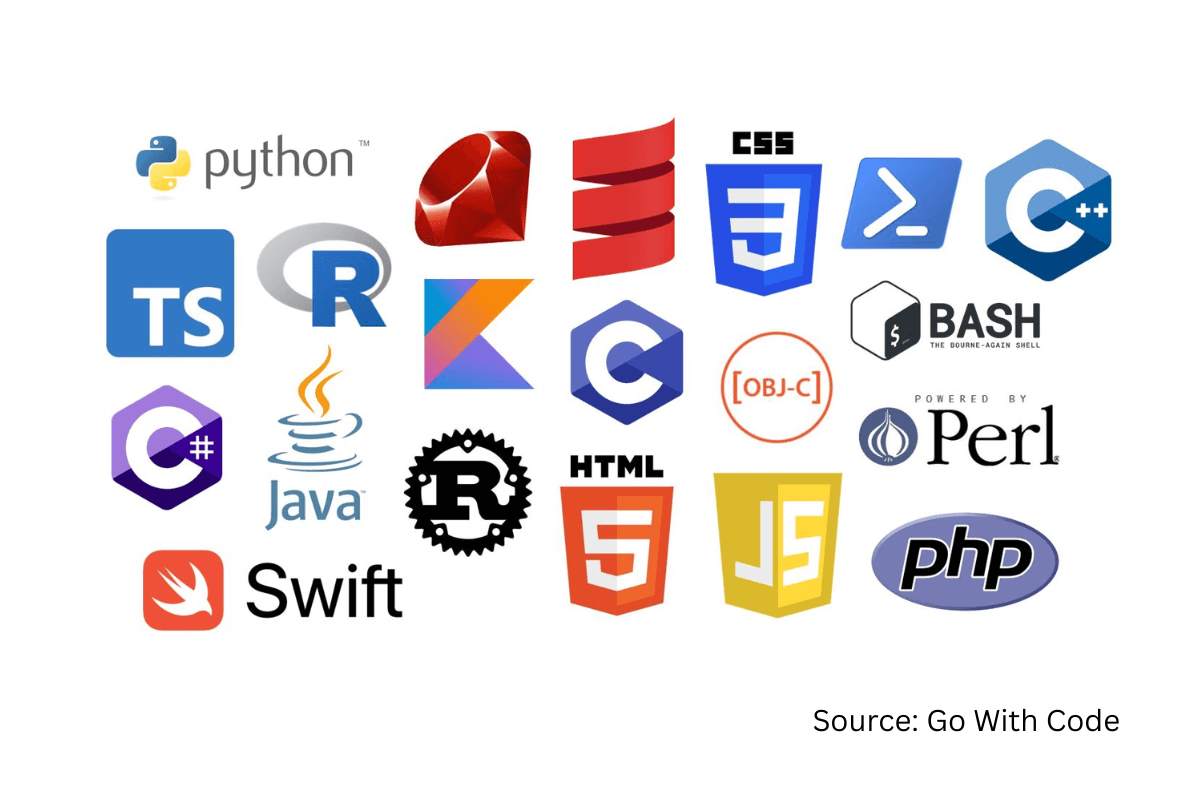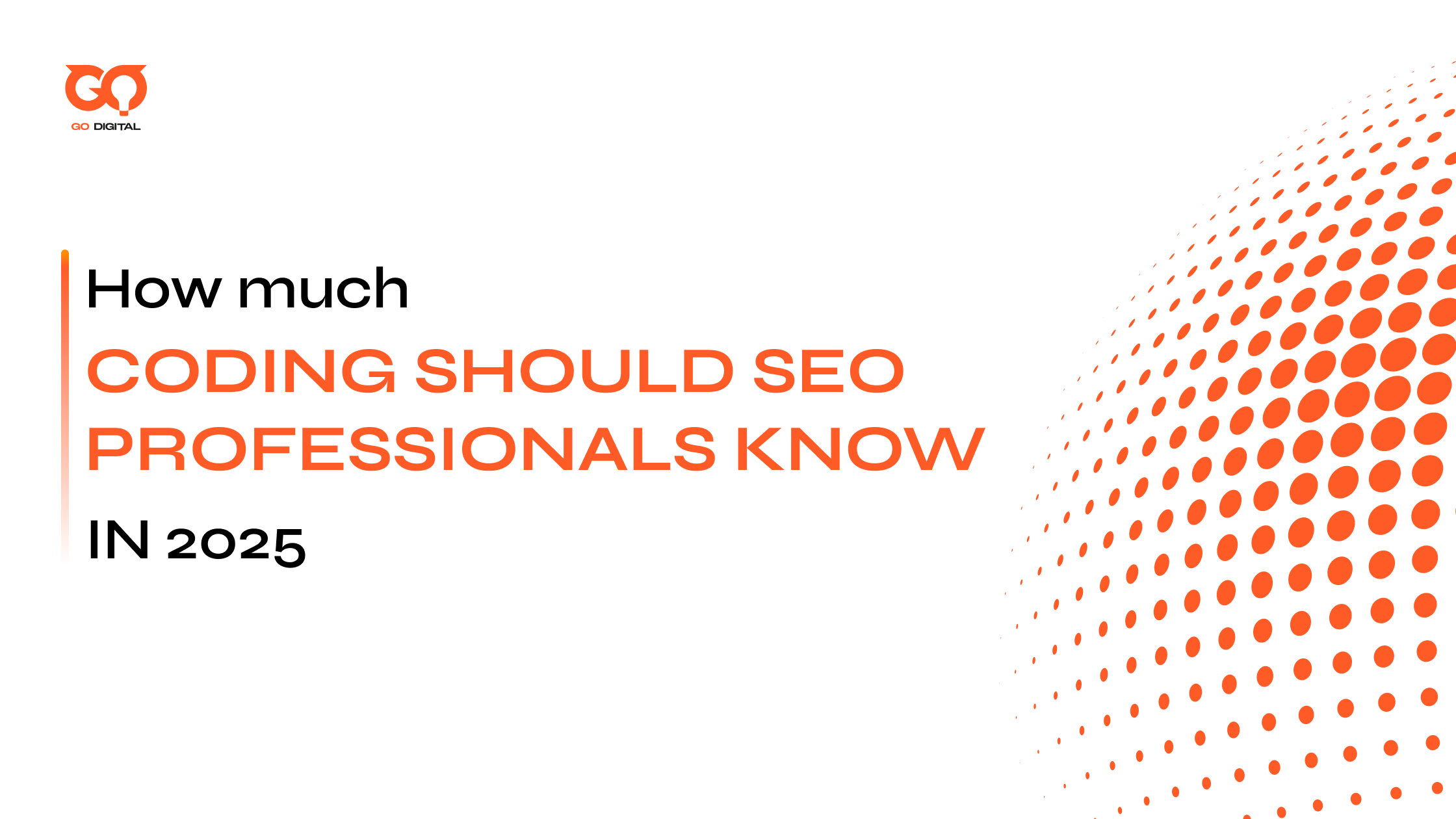How much coding does an SEO professional need to know? As Google’s Martin Splitt says, you don’t have to be a developer, but understanding how websites work is essential for modern SEO.
In this article, we’ll break down exactly what coding skills matter most for SEOs in 2025 and why the right technical know-how could set you apart. Let’s dive in!
Key Takeaways
|
How Much Coding Should SEO Professionals Know?

SEO pros don’t need to be expert programmers
SEO pros don’t need to be expert programmers. According to Google’s Martin Splitt and Gary Illyes, SEOs should understand basic systems. These include HTTP, HTML, and how JavaScript affects page rendering. Those basics help you understand website mechanics and work easily with developers.
You need to understand some of the system’s characteristics to optimize it properly, but you don’t need to be a programmer” – Martin Splitt, Google.
Coding knowledge contributes to improving SEO skills, but it is not a mandatory condition to start an SEO career. Many successful professionals start with no programming background.
For those just starting, it is useful to learn how to get into digital marketing with no experience by focusing on core marketing principles first.
What Are the Benefits of Knowing How to Code in SEO?
Knowing how to code offers many advantages to SEO professionals. These benefits highlight the importance of programming in SEO for efficiency and innovation. Here are some of the key benefits you gain with coding knowledge:
Faster Troubleshooting and On-Page Fixes

An SEO professional can quickly spot and diagnose critical on-page errors
Knowing how to code helps you quickly detect and fix common on-page errors, such as:
- Missing or incorrect meta title/description: Use Screaming Frog to scan the entire site, add or edit missing, duplicate, or too-long tags.
- Layout errors due to CSS: Check with Inspect Element, identify the faulty class, and suggest fixes to the dev.
- Incorrect schema markup: View the source code, fix the JSON-LD format, or use Google’s testing tool.
- Content not displayed due to JS: Check the console, identify the script causing the error, and report back to the dev.
For example, you find 20 articles missing meta descriptions, just export the file from Screaming Frog, add SEO-standard description tags, and update them in the CMS.
This knowledge is crucial when you consider which on-page element carries the most weight. For example, you find 20 articles missing meta descriptions, just export the file from Screaming Frog, add SEO-standard description tags, and update them in the CMS.
Smoother Collaboration with Development Teams
When you understand code, you can bridge the gap between the SEO team and the development team. You can “speak the same language” as them. It removes the guesswork and reduces the back-and-forth communication that wastes valuable time.
In addition, it also ensures that SEO recommendations will be implemented correctly and quickly. This level shows that you respect their work and have a solid grasp of web development for SEO professionals.
For example, instead of saying, “The homepage is slow,” you could say: “The homepage’s Largest Contentful Paint (LCP) is slow because the main banner image isn’t optimized. Can we convert it to WebP format and use rel=”preload” for faster loading?“
Or, when asking for redirects, you could provide a sample .htaccess file with specific 301 rules for key URLs, like:
- Redirect 301 /old-page.html /new-page.html
- Redirect 301 /category/old-name/ /new-category/
This clear guidance helps developers understand exactly what’s needed, leading to faster, more accurate implementation and fewer errors.
Better Website Performance and UX Optimization

Understanding front-end code is key to optimizing for Core Web Vitals
By understanding how your coded UI works, you can contribute to improving Core Web Vitals. These vitals include page load speed, layout stability, and responsiveness. Tools like Google Lighthouse and PageSpeed Insights provide actionable suggestions.
Here’s what coding knowledge helps with:
- Page Load Speed: You’ll know which scripts or stylesheets are render-blocking and how to defer or async-load them for faster performance.
- Layout Shifts: By identifying unused CSS or non-optimized images, you can reduce layout shifts. It’s part of Google’s Core Web Vitals.
- Responsive Design: You’ll be able to suggest or implement tweaks in CSS to improve the mobile experience, an essential SEO signal.
For example, you run a PageSpeed Insights SEO audit, and it shows that JavaScript is slowing down how fast your page loads. If you know which script is causing the delay, you can explain exactly what to fix for the developer.
Stronger Technical SEO Capabilities
Without a solid technical base, even the best content might never get found. Coding knowledge helps you tackle complex technical SEO problems, taking your skills to the next level:
- Indexing Issues: Debug why pages aren’t being indexed by checking source code (noindex tags) or robots.txt. For example, you find that a product page isn’t appearing on Google because of an unexpected noindex tag from a plugin, and you can tell the dev team exactly how to fix it.
- Canonical Tags: Verify correct rel=”canonical” implementation to prevent duplicate content. For example, on an e-commerce site with duplicate product URLs, you ensure that canonical tags on all variants point to the single, preferred URL.
- Complex Redirect Logic: Help implement server-side redirect rules (e.g., in .htaccess) for migrations. For example, you write or edit .htaccess 301 redirect code for hundreds of old URLs when a website undergoes a complete structure change.
- Crawl Budget Management: Analyze server log files (often with scripts) to identify and fix wasted crawl resources. For example, you use a Python script to find Googlebot wasting crawl budget on 404 pages, then adjust robots.txt to optimize.
- Custom Structured Data (Schema): Go beyond basic plugins to write custom JSON-LD for specific, rich information. For example, you write custom JSON-LD for product ratings and prices to ensure detailed display directly in SERP snippets.
Automation and Data-Driven SEO

Python or Google Apps Script allows you to automate report creation on a fixed timetable
One of the most underrated advantages of learning to code is automation. Knowing how to program with Python or Google Apps Script allows you to:
- Build scripts to crawl your website to check thousands of URLs for status codes, title tags, or meta descriptions
- Clean up large keyword datasets or merge information from multiple CSV files.
- Building custom dashboards that pull in Google Search Console or GA4 data.
- Auto-generating reports and emailing them on a schedule.
- Time-savers and scale. Instead of checking 500 URLs manually, one Python script can finish the task in minutes.
When Is Coding Not Necessary for SEO?

Using Shopify CMS platforms can succeed without deep coding knowledge
You don’t always need to learn code. Here are situations where you don’t need to code at work:
- You work with a tech-savvy team: Developers handle all backend and structural changes. In this case, your job is to identify issues and communicate them clearly, not to fix them yourself.
- You’re on WordPress, Shopify, or Webflow: These platforms are designed to be “no-code” or “low-code“. It also has many built-in SEO features and plugins that handle the technical aspects for you.
- Modern tools help you skip code: Tools like Screaming Frog, Ahrefs, and Semrush have graphical interfaces that make this easy.
- You’re doing PR & content-based SEO: Your focus is on keywords, storytelling, and outreach, not tags or page speed.
What Coding Skills Are Most Useful for SEO Professionals?

A few key languages provide the most significant advantages
If you decide to invest time in learning SEO coding basics, you do not need to become a full-stack developer. Focusing on a few key areas will provide the biggest return on your investment.
Here are the most useful coding skills for an SEO professional:
HTML (HyperText Markup Language)
Why it matters: HTML is the backbone of every web page. Understanding it allows you to read, audit, and optimize key SEO elements directly.
Practical uses:
- Identify and edit title tags, meta descriptions, and heading tags (H1-H4).
- Add or fix image alt attributes for better accessibility and search visibility.
- Implement or correct schema markup for rich results in search.
- Review and adjust internal linking structures using <a> tags.
Example: You notice a landing page is missing an H1 tag or has duplicate meta descriptions. You can fix this directly in the Content Management System (CMS) or explain the exact HTML change needed to a developer.
CSS (Cascading Style Sheets)
Why it matters: Basic CSS knowledge helps you understand how a page looks. It is useful for finding layout problems that could affect user experience or cause Cumulative Layout Shift (CLS) issues.
Practical uses:
- Diagnose layout shifts (CLS problems) that affect Core Web Vitals.
- Spot hidden text or links that might violate search engine rules.
- Understand if elements are visually hidden or displayed unexpectedly.
Example: You see a large banner image pushing content down the page, causing a CLS issue. You can tell if the CSS styling is responsible and suggest a fix to the development team.
JavaScript
Why it matters: More websites use JavaScript to load content. Understanding the basics is vital to know how JavaScript can affect crawling and indexing.
Practical uses:
- Identify if important content or links are loaded client-side via JavaScript.
- Understand potential rendering problems for search engine bots.
- Spot JavaScript code that might block CSS or create large network requests.
Example: You find that your product prices or descriptions load slowly because they are pulled in by JavaScript after the main page loads. You can then tell developers about this potential SEO issue.
Basic PHP
Why it matters: A large part of the web runs on WordPress, which uses PHP. A basic understanding helps you know how themes and plugins work.
Practical uses:
- Understand how WordPress themes and plugins might affect page structure or data output.
- Troubleshoot server-side rendering problems.
- Help debug plugin conflicts that impact SEO elements, like sitemaps or redirects.
Example: You realize a WordPress plugin meant for generating schema markup is not outputting correct data, and your basic PHP knowledge helps you understand why.
Scripting (Python or Google Apps Script)
Why it matters: Learning a scripting language is key for automating repetitive SEO tasks, saving significant time, and improving efficiency.
Practical uses:
- Automate daily ranking checks or keyword research.
- Pull data from various APIs (Google Search Console, Google Analytics) for custom reports.
- Clean and analyze large datasets quickly and without manual effort.
Example: You write a Python script to automatically pull weekly keyword rankings from Google Search Console into a Google Sheet. This removes the need to manually download and import data.
Summary Table: Coding Skills for Different SEO Roles
| SEO Role | Coding Skills Needed | Example Applications |
| Content SEO | HTML, CSS (basic) | On-page optimization, meta tags, headings |
| Technical SEO | HTML, CSS, JS, Python | Indexing, redirects, crawl, and automation |
| SEO Manager | Overview of HTML/CSS/JS | Communicate with devs, project oversight |
| SEO for SaaS | HTML, JS, Python | Web app optimization, automated reports |
Which SEO Skills Don’t Require Any Programming?

Link Building thrives on skills that have nothing to do with programming
SEO is a broad field with many areas of specialization. Many of its most important disciplines are not technical and require no programming knowledge at all. These skills focus on marketing, strategy, communication, and creativity.
Here are some essential SEO skills that do not require programming:
- Keyword Research and Content Strategy: Identify what users search for and plan content to meet their needs.
- Link Building and Digital PR: Earn high-quality backlinks from reputable sites through outreach and great content.
- Competitor Analysis: Analyzing the strategies of competing websites to find opportunities and threats is a purely analytical task that uses third-party tools.
- User Experience Strategy: Improve site navigation and conversion funnels by understanding user behavior and design.
- Data Analysis and Reporting: Interpret data from tools like GA4 and Search Console to find trends and share insights.
- Project Management: Manage SEO strategy for SaaS, coordinate teams, and communicate effectively with clients.
Should You Learn Coding as an SEO in 2025?

A structured learning path can make acquiring valuable coding skills manageable
Yes, you absolutely should learn at least a little programming to become a professional SEOer. The level of programming proficiency you need depends on your role. Specifically:
- If you are a content-focused SEO or work at a strategic level, you should solid understanding of HTML and basic CSS. This will optimize content effectively and communicate basic structural changes. The process of learning HTML for SEO is straightforward and delivers high value quickly.
- If you do technical SEO or handle site migrations, you should learn JavaScript or Python. This helps you understand data visualization and collection issues. It also helps with automation, data collection, and data processing.
A suggested learning path includes:
| Timeframe | Focus Area | Key Learning Objectives | Practical Application / Example |
| Weeks 1 – 2 | HTML & CSS Fundamentals | Understand page structure, basic styling, and core SEO elements. | Learn to identify/edit heading tags (H1-H4), meta descriptions, image alt text, and <a> tags. |
| Weeks 3 – 4 | Basic JavaScript Concepts | Grasp how scripts function, understand rendering, and spot JS-related SEO issues. | Recognize if critical content loads via JavaScript or identify scripts blocking page rendering. |
| Week 5 & Beyond | Python (for Automation) | Learn to automate tasks, collect, and process data efficiently. | Write a script to automatically check HTTP status codes for a list of URLs from a spreadsheet. |
Conclusion
So, how much coding should SEO professionals know in 2025? There is no single answer that fits everyone. You can choose to learn Python scripting or just master basic HTML. Either way, investing in your technical skills is an investment in your career.
At Golden Owl Digital, we provide expert SEO services to tackle these challenges, helping businesses and developers achieve top rankings. Contact Golden Owl today to optimize your website and dominate search results in 2025.

Jaden is an SEO Specialist at Golden Owl Digital. He helps brands rank higher with technical SEO and content that resonates






